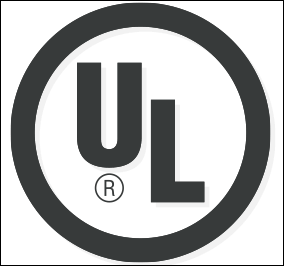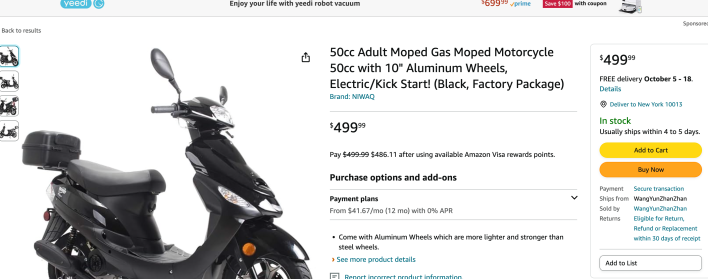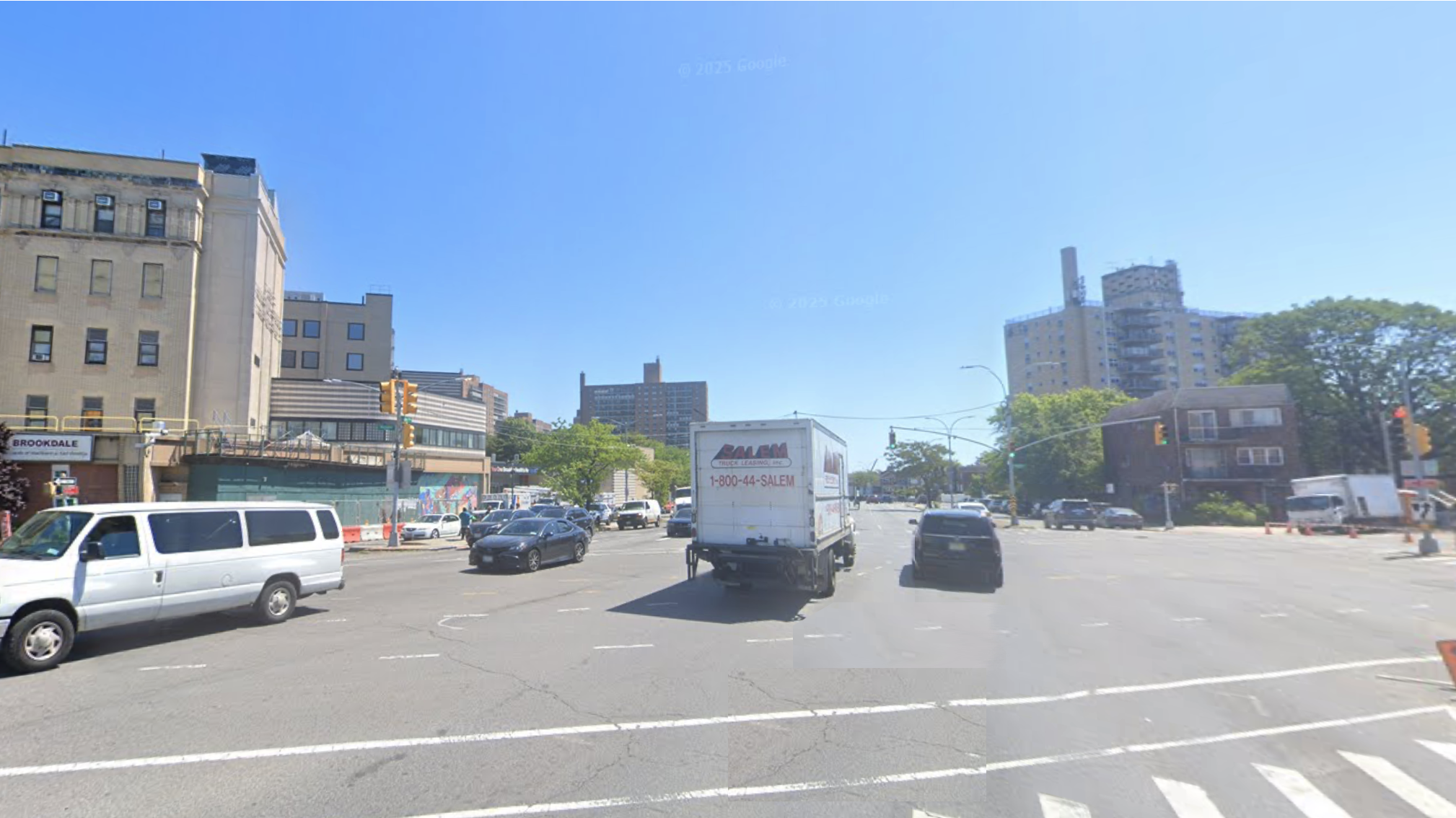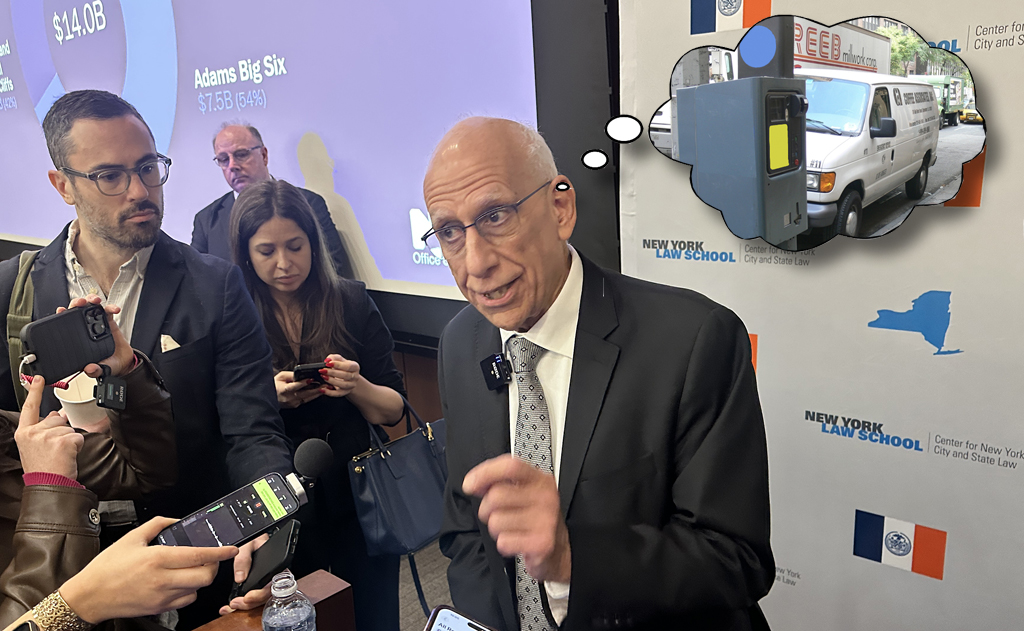Call it Amazon Crime.
The mammoth online retailer is selling illegal batteries and mopeds to city residents, despite such devices being forbidden from city streets — even as it bars less-dangerous items such as toy guns and bear repellant spray from being shipped to the five boroughs, Streetsblog has learned.
The Jeff Bezos-owned e-commerce behemoth is skirting the legislation — known as Local Law 39, which prohibits the sale of batteries that are not approved by the nationally recognized UL Solutions (Underwriters Laboratory) — by still offering mopeds for as little as $500 and uncertified lithium-ion batteries for as little as $219. Those items can be shipped to anyone's doorstep, even as the Department of Consumer and Worker Protection has begun enforcement against brick-and-mortar retailers selling such items due to a spate of deadly infernos attributed to the shoddy power packs.

Advocates say the focus of the crackdown should be on massive online retailers like Amazon, eBay, and Walmart, not just local stores.
“These platforms need to do their part to make sure New York City residents are able to sleep safely at night without worrying about suffocating in a battery fire,” said Baruch Herzfeld, the founder of Popwheels, who spotted the items for sale and alerted Streetsblog. "They can't be allowed to be the alternative destination for people seeking cheap, unsafe, non-certified batteries.”
For the city’s 65,000 delivery workers, who take home an average of $7 per hour before tips, the cost of a certified battery can be prohibitive. None of the major delivery apps, including Uber, Grubhub, DoorDash, and Relay, provides their "independent contractors" with safe equipment.

Legislation proposed last week by Bronx Council Member Oswald Feliz seeks to change that. Lawmakers last week also rubber stamped a bill to create a citywide "buy back" program that would allow delivery workers to exchange faulty or second-hand lithium-ion batteries for safe, certified ones.
And it's not the first time that safety advocates have sought more enforcement against shadowy online dealers. In March, when Bronx Rep. Ritchie Torres introduced legislation requiring the Consumer Product Safety Commission to establish safety standards for such batteries, he also called on the U.S. Customs and Border Patrol and the Department of Homeland Security to prevent defective or uncertified batteries from entering the country.
“We must hold manufacturers accountable for producing safer devices and safer batteries [and] hold online marketplaces accountable for preventing the sale of dangerous bikes and devices,” Torres said at the time.

A spokesperson for the CPSC told Streetsblog this week that each state has its own requirements about what can be brought into and sold within its borders.
Amazon told officials earlier this summer that it would be "undertaking the work" to ensure such devices could not be shipped anywhere in the city, according to a spokesperson for the DCWP, but the retail giant is not doing so. Streetsblog was able to purchase this cheap, now-illegal battery with just a few mouseclicks.
DCWP is encouraging consumers to file complaints if they believe any retailers, including those online, are selling uncertified batteries or devices.
The DCWP can also issue cease-and-desist letters and summonses when appropriate, but the agency said none so far has been issued and that it is in the "process of our sweep of online retailers."
The FDNY declined to comment, referring Streetsblog to the DCWP, and Amazon did not respond to requests for comment.






